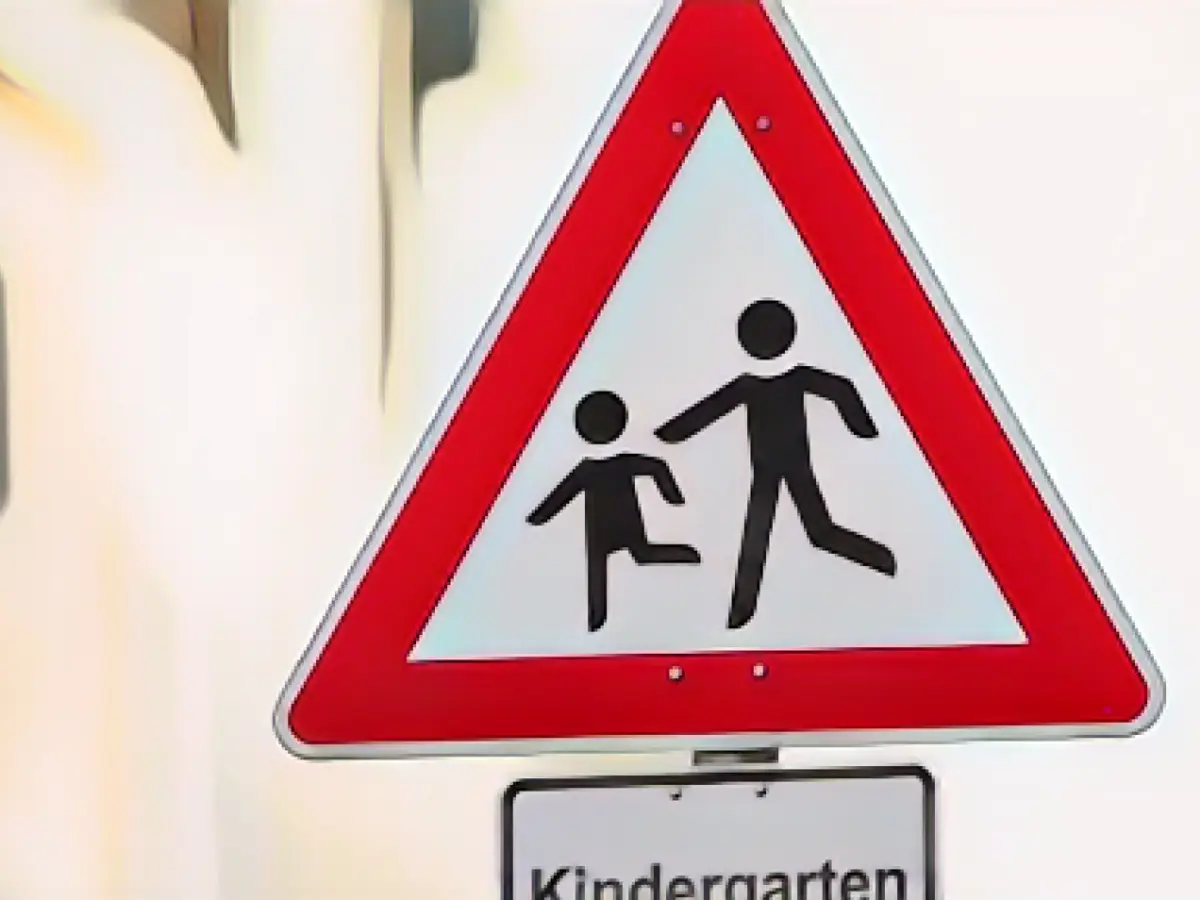Childcare - Daycare groups in MV to become smaller
Accompanied by a protest action by nursery school teachers, the state parliament in Schwerin began its deliberations on the new state daycare law on Thursday. When introducing the law, Education Minister Simone Oldenburg (Left Party) emphasized that the change would improve the ratio of specialist staff to children in daycare centres from 1:15 to 1:14. Language support for children is to be intensified and the opportunity for parents to participate is to be expanded.
Assistants with several years of professional experience will be able to look after smaller groups themselves during off-peak times. "The quality improvements in child day care in Mecklenburg-Vorpommern are continuing step by step," stated the Minister. At the action organized by Verdi in front of the state parliament this morning, around 20 nursery nurses demanded better working conditions.
The desire for larger steps is understandable, but the financial possibilities must not be lost sight of, said Oldenburg. Improving the childcare ratio alone would cost an additional 12 million euros per year. According to the minister, the state is providing a total of 467 million euros for childcare this year, which is almost eight percent more than in 2022.
AfD MP Enrico Schult complained that the childcare funds provided by the federal government in Mecklenburg-Vorpommern had been used solely to exempt parents from paying the costs. Other federal states, on the other hand, had used the money primarily to improve the quality of care. However, the need for this was also great in MV.
Like Schult, Jutta Wegner from the Green Party also criticized the fact that the amendment to the law would not strengthen the position of childminders. She also reiterated her call to reduce the size of the groups more quickly in order to strengthen early childhood education. In reality, in times of high sickness rates, one childminder sometimes has to look after 19 children. However, there is often not enough time for targeted support.
In the most recent study by the Bertelsmann Foundation, Mecklenburg-Vorpommern once again came last in the state comparison of childcare ratios. Oldenburg attributed this, among other things, to the high level of childcare and the longest opening hours of daycare centers in Germany.
According to earlier information from the Minister, a total of 117,470 girls and boys are looked after in daycare facilities or by childminders in the north-east. The childcare rate for 0 to 3-year-olds is 59 percent, and just under 95 percent for 3 to 6-year-olds. With these rates and also with the weekly care times, Mecklenburg-Vorpommern is at the top of the list in a state comparison. The rates are significantly lower in the western states in particular. There is a lack of childcare places and daycare centers close earlier and often over lunchtime, said Oldenburg.
Timetable for the state parliament session with links to laws and motions Daycare statistics
Read also:
- A clan member is punished here
- Traffic lawyer warns: Don't talk to the police!
- Will he be convicted as Jutta's murderer after 37 years?
- He also wanted to kill his cousin
- The United Services Union, representing educators, joined the protest action organized by Verdi, expressing their concerns about the working conditions of nursery nurses in Mecklenburg-Vorpommern.
- Simone Oldenburg, the Education Minister, recognized the demands of the protesters but cautioned that the financial implications must be considered, as improving the childcare ratio alone would cost an additional 12 million euros annually.
- In the context of childcare finances in Germany, Oldenburg highlighted that Mecklenburg-Vorpommern received 467 million euros this year, an increase of almost eight percent compared to 2022.
- Critics such as AfD MP Enrico Schult and Green Party's Jutta Wegner argued that the amendment to the law did not adequately address the needs of childminders and failed to substantially reduce group sizes, even in times of high sickness rates.
- As a result of the current state of childcare in Mecklenburg-Vorpommern, the region consistently ranks last in the state comparison, according to the latest study by the Bertelsmann Foundation.
- In an effort to improve the education and care for children, Oldenburg advocated for more childcare places and later opening hours for daycare centers in Mecklenburg-Vorpommern, aiming to address the noted deficiencies compared to western states.
Source: www.stern.de








